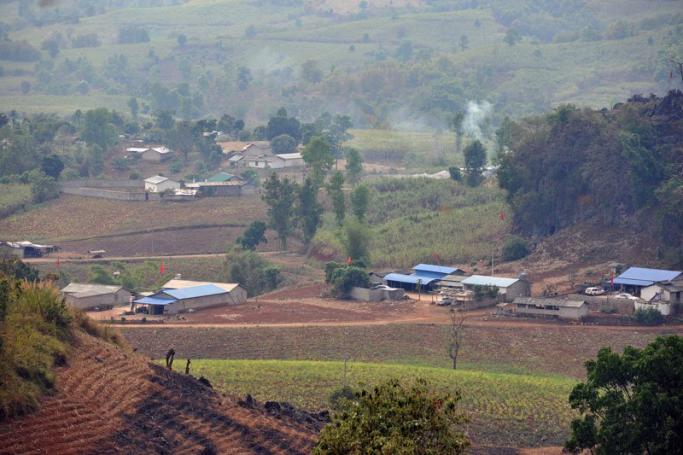Myanmar National Democratic Alliance Army, Ta'ang National Liberation Army and Arakan Army jointly issued a declaration on December 12, claiming that in support of Myanmar government's efforts to achieve national reconciliation and peace, they were willing to join hands with the government to solve military conflicts and political issues through dialogue. To achieve peace at an early date, these three ethnic armed groups expressed willingness to suspend military operations to pave way for political engagement and hoped the same from the government side. They also expressed hopes to include the Union Political Dialogue Joint Committee (UPDJC) and China in the mediation for reconciliation. Currently, it seems armed conflicts in northern Myanmar, which have gone on since 2015, are about to come to an end.
The UPDJC then declared that it was working to involve all ethnic armed groups in the reconciliation process and that it would keep cooperating with the three ethnic armed groups to reach cease-fire agreements. The UPDJC will continue to hold negotiations so that groups that have not yet signed such agreements will follow suit.
Thein Sein administration signed national cease-fire agreements with eight ethnic armed groups in October 2015 after nine rounds of negotiations. The incumbent government led by the National League For Democracy attaches great importance to this problem and new mechanisms and institutions have been established. Myanmar's State Counselor Aung San Suu Kyi personally deals with national reconciliation as a major state matter. Over the past two years, the government has made progress in promoting national reconciliation. This February, another two ethnic armed groups signed national cease-fire agreements, leaving roughly 10 left.
It's noteworthy that while the government is pushing national reconciliation forward, conflicts between Burmese chauvinism and nationalism in regions inhabited by ethnic groups remain serious. Many ethnic groups consider the government and military as representatives of the Burmese people.
Such confrontation gives rise to fierce fights among government, military and ethnic armed groups. Fights between the government forces and the ethnic armed groups occur frequently, especially in Shan State and parts of Kachin State. The main barrier against national reconciliation lies in conflicts among government, military and ethnic armed groups concerning rights, benefits, culture, education, religious beliefs, etc. When not properly solved, these conflicts in turn breed more fights over rights and benefits.
Stories around the world show that national reconciliations are hardly realized through external forces, so all parties within Myanmar need to do their part. As far as China is concerned, long-standing turmoil is never wanted; China has fallen victim to Myanmar's internal wars several times in history. China's border security and stability depend on Myanmar's peace and stability; this is where China's core benefits lie.
As Myanmar's friendly neighbor, China supports the Myanmar government to push forward a fully inclusive peace reconciliation process and hopes all parties in Myanmar enhance dialogue to realize national peace and development at an early date. The Chinese side holds that all parties in Myanmar shall adopt comprehensive and inclusive policies to forge ahead the peace-building process, which is also the only feasible path toward reconciliation and peace. China has and will continue to play a constructive role in this regard.
Since 2017, China has been mediating among the UPDJC and the aforementioned three ethnic armed groups, with one meeting held each month since August. It also sent special envoys to the 21st Century Panglong Peace Conference in 2016 and 2017, prompted several ethnic armed groups back to the negotiation table and took more proactive measures to foster reconciliation at the third Panglong conference in July this year.
This year, top leaders of China and Myanmar have kept communication and coordination concerning the northern Myanmar issue. On January 17, the two countries held the third round of 2+2 high-level talks on diplomacy and defense, and emphasized proper management and control of the northern Myanmar situation and the safeguard of peace and stability in the China-Myanmar border areas as the focus for dialogue. Myanmar has promised several times to take action to deepen pragmatic cooperation with China in security and drug control so as to safeguard security and stability along the border.
It is unrealistic to solve all problems concerning Myanmar's ethnic conflicts through several negotiations. However, with continuous peace talks, solutions that suit all sides are bound to be found. But in this process all Myanmese parties involved need to be sincere, faithful and patient. We look forward to seeing a Myanmar that enjoys unity, peace, prosperity and democracy.
The author is a professor at Center for China's Neighbor Diplomacy Studies and School of International Studies, Yunnan University.
Courtesy of Global Times












